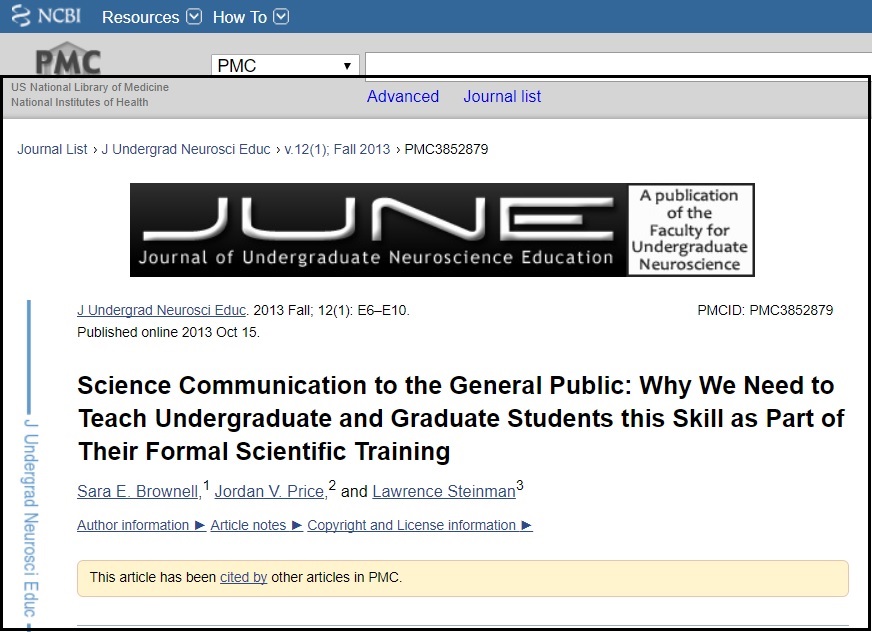Brownell SE., Price JV., & Steinman L.
Journal of Undergraduate Neuroscience Education. 2013;12(1):E6-E10. PMCID: PMC3852879
Do you think that communication of science to the general public is a responsibility of scientists? If the answer is yes, are scientists able to do this? In this article, the authors say that while scientists are thoroughly trained in research methodologies, analytical skills, and the ability to communicate with other scientists, most often, they do not get trained in the communication of scientific concepts to a layperson audience.
Scientists over a period of their professional lives naturally become very specialized in their knowledge. This, combined with the absence of formal training in science communication probably makes it difficult for them to communicate their knowledge in a simple lay-person oriented manner. The authors of this article provide guidance on communication skills with an emphasis on interaction with a layperson audience. With specific examples derived from their own experience they describes the needs, difficulties as well as solutions for providing communication training to scientist. They recommend:
- Teaching communication in the context of basic sciences – that is both in parallel
- Providing ample opportunities to practice communication
- Providing students a “real audience” to write for – through blogs, forums and more
- Providing students with an opportunity for orally communicating with audiences
- Introducing such communication teaching at the undergraduate level and continuing it further
In addition to this we can add that, in linguistically diverse country like India for an effective communication it is also required that scientist or medical professionals must able to communicate in the regional and local languages for better understanding of their audience.



